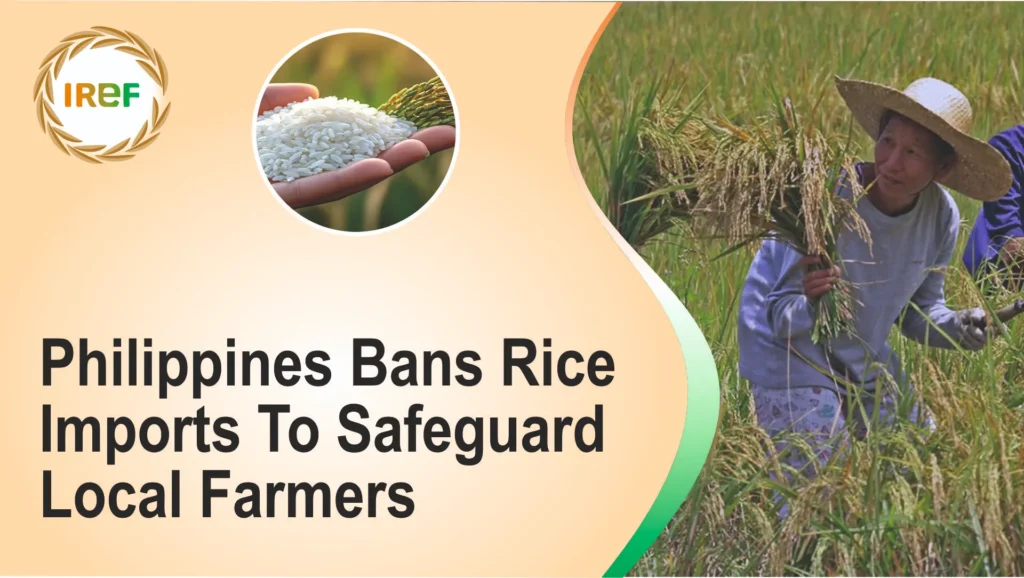On Wednesday, August 8, the Philippine Government announced a ban on rice imports for 60 days from September 1, 2025, to safeguard local farmers affected by reduced prices during the harvest season.
The announcement comes after Agriculture Secretary Francisco Tiu Laurel Jnr pushed for a temporary halt in imports of rice as well as an increase in rice import tariffs. He has stated that an inundation of imported rice is burdening local producers and could pressurise millers to shut down their operations.
Communications Secretary Dave Gomez told reporters that President Ferdinand Marcos Jnr has ordered a rice tariff suspension. He added that a tariff rise on imported rice had been ruled out for now. We will still see if we need to resort.
Agriculture Assistant Secretary Arnel de Mesa stated that the suspension period covered the country’s peak harvest season, when the Philippines is self-sufficient.
The output of paddy rice, usually planted twice a year, rose to 8.2 million tonnes (9 million tons) in the first half of the year. The government’s goal is to produce a record 18.5 million tonnes (20.5 million tons) for the full year. Last year, the government reduced the import duty on rice to 15 per cent from 35 per cent until 2028 in a bid to control inflation. Rice prices in the Philippines fell by a record 15.9 per cent last month.
What Happened To Rice In The Philippines Last Year?
Last year, the country imported 4.8 million tonnes (5.3 million tons) of rice, with its Southeast Asian neighbours, Vietnam and Thailand, among its key suppliers. It is still unclear whether any pending orders would be affected by the suspension.
Crop output, accounting for 56 per cent of total farm production, has risen to 11.3 per cent from a year earlier. Rice production grew by an annual 13.9 per cent, a sharp increase from the 0.3 per cent growth in the first quarter.
Falling rice prices helped slow annual inflation to a near six-year low of 0.9 per cent in July, after the government had declared a “food security emergency” earlier this year to bring down the cost of rice. According to a Reuters poll, Economic growth data is predicted to show the economy grew by an annual 5.4 per cent in the second quarter, matching the previous quarter’s growth rate.



